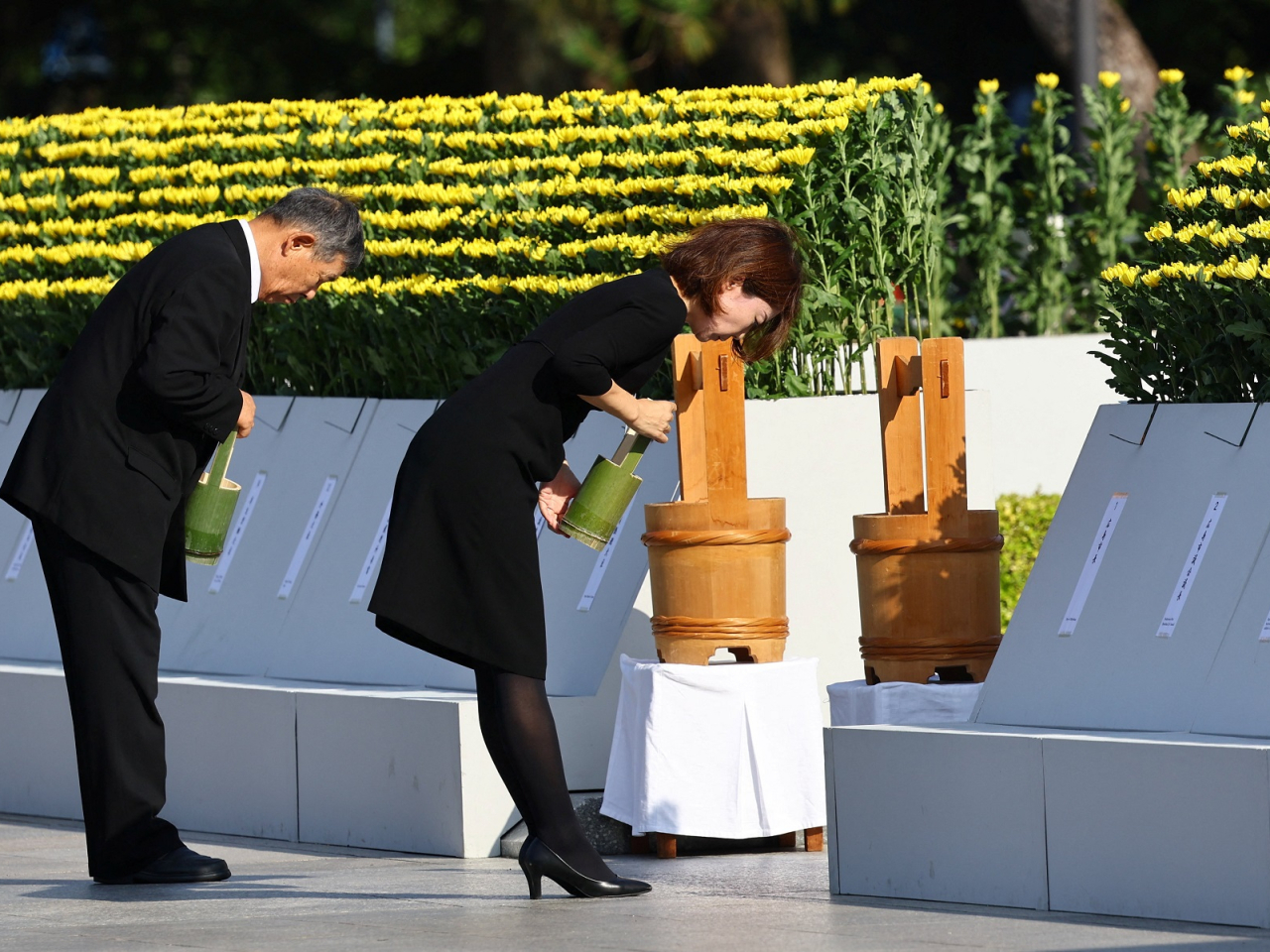Hiroshima on Wednesday marked the 80th anniversary of the US atomic bombing of the western Japanese city, with many aging survivors expressing frustration about growing support among global leaders for nuclear weapons possession for deterrence.
With the number of survivors rapidly declining and their average age now exceeding 86, the anniversary is considered the last milestone event for many of them.
Hiroshima Mayor Kazumi Matsui warned against a growing acceptance to nuclear weapons for national security and military buildups amid Russia's war in Ukraine and the Mideast conflicts, with the United States and Russia possessing most of the world's nuclear warheads.
“These developments flagrantly disregard the lessons the international community should have learned from the tragedies of history,” he said. "They threaten to topple the peacebuilding frameworks so many have worked so hard to construct.”
He urged younger generations to recognize that such “misguided policies" could cause “utterly inhumane" consequences for their future.
“We don't have much time left, while we face greater nuclear threat than ever,” said Nihon Hidankyo, a Japanese grassroots organisation of survivors that won the Nobel Peace Prize last year for its pursuit of nuclear abolishment.
“Our biggest challenge now is to change nuclear weapons states that give us cold shoulders even just a little,” the organisation said in a statement.
The bombing of Hiroshima on August 6, 1945, destroyed the city and killed 140,000 people. A second bomb dropped three days later on Nagasaki killed 70,000.
Japan surrendered on August 15, ending World War II and Japan’s nearly half-century of aggression in Asia.
A minute of silence was held as the sound of a peace bell rang out at 8.15am, the time when a US B-29 dropped the bomb on the city.
Japanese Prime Minister Shigeru Ishiba, the city's mayor and other officials laid flowers at the cenotaph.
Dozens of white doves, a symbol of peace, were released after the mayor’s speech.
Hours before the official ceremony, survivors and their families started paying tribute to the victims at the peace memorial park as the sun rose over Hiroshima.
Kazuo Miyoshi, a 74-year-old retiree, came to pay tribute to his grandfather and two cousins who died in the bombing and prayed that the “mistake” will never be repeated — as the cenotaph inscription says.
Nuclear threats have escalated so much recently, he said. “I just hope the situation won’t worsen” a setback from the goal of abolishing nuclear weapons.
“We do not need nuclear weapons,” Miyoshi said. (AP)





